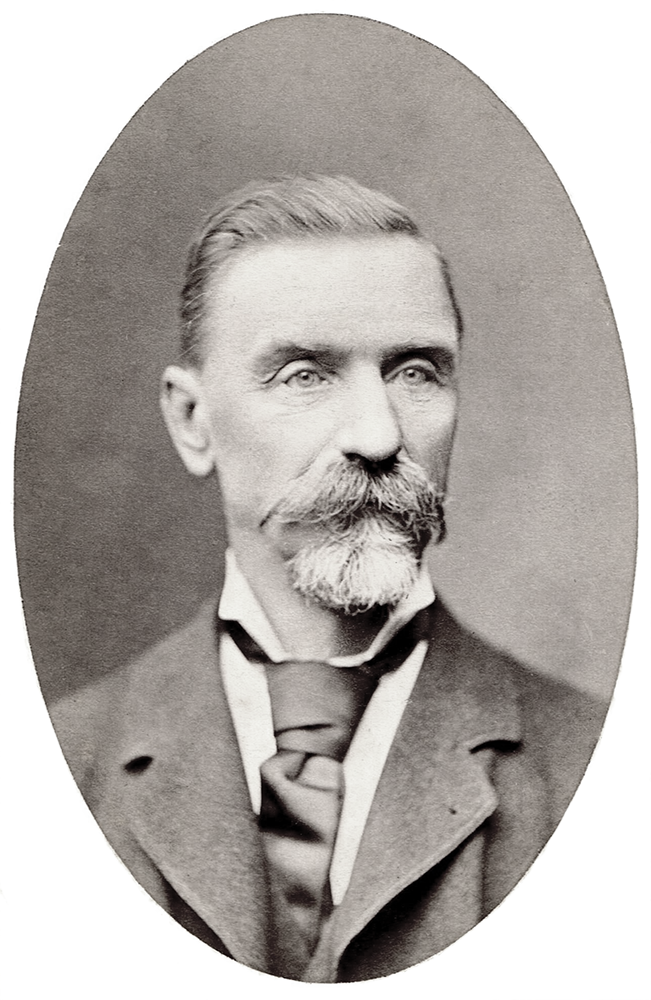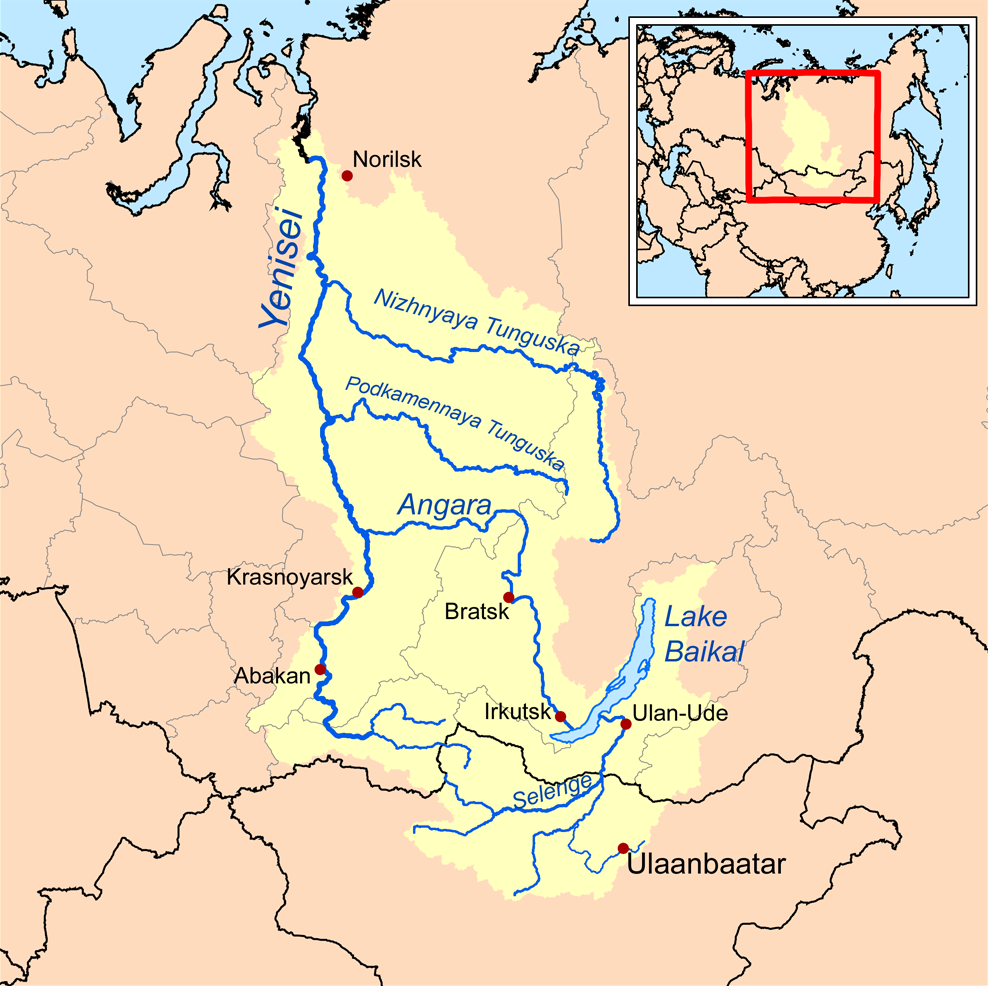|
Wiktor Godlewski
Wictor Godlewski (30 December 1831 – 17 November 1900) was a Polish nobleman, explorer, and naturalist. After spending time in Siberian labour camps following his participation in the January Uprising, he began to study the natural history of the Siberian region. Many species of birds and other animals are named after him including Godlewski's bunting. Life and work Godlewski was born to Aleksander and Anna Karolina daughter of Józef Ciołkowski in in the Polish noble clan Gozdawa. After the death of his father in 1848 he moved to work in the Brulino-Koski estate of his cousin Józef Wincenty. He took an interest in hunting and collecting bird specimens and collaborated with Władysław Taczanowski. In 1863, he was punished for taking part in the January Uprising and sent to labour in Siberian mines for 12 years. From 1864, he worked for a while in Pietrowska Mine in Irkutsk. Along with another inmate Alfons Parvex, he studied the Daurian fauna. His sentence ended in 1877 an ... [...More Info...] [...Related Items...] OR: [Wikipedia] [Google] [Baidu] |
Wiktor Ignacy Godlewski 1890
Wiktor may refer to: *Andrzej Wiktor (1931–2018), Polish malacologist *Wiktor Andersson (1887–1966), Swedish film actor * Wiktor Balcarek (1915–1998), Polish chess player * Wiktor Biegański (1892–1974), Polish actor, film director and screenwriter * Wiktor Brillant (1877–1942), Polish pharmacist *Wiktor Chabel (born 1985), Polish rower *Wiktor Eckhaus (1930–2000), Polish–Dutch mathematician * Wiktor Jassem (1922–2016), Polish phonetician, philologist, linguist * Wiktor Gilewicz (1907–1948), Polish officer *Wiktor Grotowicz (1919–1985), Polish actor *Wiktor Komorowski (1887–1952), Polish pilot *Wiktor Litwiński, Polish politician *Wiktor Olecki (1909–1981), Polish cyclist *Wiktor Ormicki (1898–1941), Polish geographer and cartographer *Wiktor Poliszczuk (1925–2008), Polish-Ukrainian-Canadian politologist *Wiktor Zygmunt Przedpełski (1891–1941), Polish socialist and activist *Wiktor Sadowski (born 1956), Polish artist *Wiktor Suwara (born 1996), Polish ... [...More Info...] [...Related Items...] OR: [Wikipedia] [Google] [Baidu] |
Katorga
Katorga ( rus, ка́торга, p=ˈkatərɡə; from medieval and modern Greek: ''katergon, κάτεργον'', " galley") was a system of penal labor in the Russian Empire and the Soviet Union (see Katorga labor in the Soviet Union). Prisoners were sent to remote penal colonies in vast uninhabited areas of Siberia and Russian Far East where voluntary settlers and workers were never available in sufficient numbers. The prisoners had to perform forced labor under harsh conditions. History ''Katorga'', a category of punishment within the judicial system of the Russian Empire, had many of the features associated with labor-camp imprisonment: confinement, simplified facilities (as opposed to prisons), and forced labor, usually involving hard, unskilled or semi-skilled work. Katorga camps were established in the 17th century by Alexis of Russia in newly conquered, underpopulated areas of Siberia and the Russian Far East - regions that had few towns or food sources. Despite the ... [...More Info...] [...Related Items...] OR: [Wikipedia] [Google] [Baidu] |
January Uprising
The January Uprising ( pl, powstanie styczniowe; lt, 1863 metų sukilimas; ua, Січневе повстання; russian: Польское восстание; ) was an insurrection principally in Russia's Kingdom of Poland that was aimed at the restoration of the Polish–Lithuanian Commonwealth. It began on 22 January 1863 and continued until the last insurgents were captured by the Russian forces in 1864. It was the longest-lasting insurgency in partitioned Poland. The conflict engaged all levels of society and arguably had profound repercussions on contemporary international relations and ultimately provoked a social and ideological paradigm shift in national events that went on to have a decisive influence on the subsequent development of Polish society. A confluence of factors rendered the uprising inevitable in early 1863. The Polish nobility and urban bourgeois circles longed for the semi-autonomous status they had enjoyed in Congress Poland before the previous insu ... [...More Info...] [...Related Items...] OR: [Wikipedia] [Google] [Baidu] |
Godlewski's Bunting
Godlewski's bunting (''Emberiza godlewskii'') is a species of bird in the family Emberizidae. It is named after the Polish collector Victor Godlewski who obtained a specimen of which on the basis of which it was described by Taczanowski. Distribution and habitat It is found in China, Pakistan, India, Kazakhstan, Mongolia, Myanmar, and Russia. Description The adult's head, neck, and breast are grey over-all with a brown or black eye stripe, "mustache", and crown. Its underparts and rump are an orange/buff wash and its back is mottled orange and black. The tail is black and orange above and white beneath, with a definite notch at the end. It has a sparrow-like beak which is black above and pale below. The legs and feet are light pink. Habitat Its natural habitat is temperate shrubland Shrubland, scrubland, scrub, brush, or bush is a plant community characterized by vegetation dominated by shrubs, often also including grasses, herbs, and geophytes. Shrubland may eit ... [...More Info...] [...Related Items...] OR: [Wikipedia] [Google] [Baidu] |
Brulino-Koski
Brulino-Koski is a village in the administrative district of Gmina Czyżew-Osada, within Wysokie Mazowieckie County, Podlaskie Voivodeship Podlaskie Voivodeship or Podlasie Province ( pl, Województwo podlaskie, ) is a voivodeship (province) in northeastern Poland. The name of the province and its territory correspond to the historic region of Podlachia. The capital and largest cit ..., in north-eastern Poland. References Brulino-Koski {{WysokieMazowieckie-geo-stub ... [...More Info...] [...Related Items...] OR: [Wikipedia] [Google] [Baidu] |
Władysław Taczanowski
Władysław Taczanowski (; 17 March 1819, in Jabłonna, Lublin Voivodeship – 17 January 1890, in Warsaw) was a Polish zoologist and collector of natural history who explored the Russian Far East and northern Africa. He specialized mainly in ornithology but also described numerous other taxa including reptiles and arachnids. Life A member of an old noble ('' szlachta'') magnate family, Taczanowski, from the Poznań region Władysław studied in Lublin and managed the family farm after the death of his father. He then joined government service and served on special missions of the governor of Radom. He joined the Warsaw University Museum in 1855 and began to travel and train at other museums. In 1865 he joined Benedict Dybowski and Victor Godlewski on expeditions to Eastern Russia. In 1862 he succeeded Feliks Paweł Jarocki as curator. Taczanowski took part in an expedition to Algeria with Antoni S. Waga (1866–67) and wrote several significant studies including ''Birds of P ... [...More Info...] [...Related Items...] OR: [Wikipedia] [Google] [Baidu] |
Irkutsk
Irkutsk ( ; rus, Иркутск, p=ɪrˈkutsk; Buryat language, Buryat and mn, Эрхүү, ''Erhüü'', ) is the largest city and administrative center of Irkutsk Oblast, Russia. With a population of 617,473 as of the 2010 Census, Irkutsk is the List of cities and towns in Russia by population, 25th-largest city in Russia by population, the fifth-largest in the Siberian Federal District, and one of the largest types of inhabited localities in Russia, cities in Siberia. Located in the south of the eponymous oblast, the city proper lies on the Angara River, a tributary of the Yenisei River, Yenisei, about 850 kilometres (530 mi) to the south-east of Krasnoyarsk and about 520 kilometres (320 mi) north of Ulaanbaatar. The Trans-Siberian Highway (Federal M53 and M55 Highways) and Trans-Siberian Railway connect Irkutsk to other regions in Russia and Mongolia. Many distinguished Russians were sent into exile in Irkutsk for their part in the Decembrist revolt of 1825, and t ... [...More Info...] [...Related Items...] OR: [Wikipedia] [Google] [Baidu] |
Benedykt Dybowski
Benedykt Tadeusz Dybowski (12 May 183331 January 1930) was a Polish naturalist and physician. Life Benedykt Dybowski was born in Adamaryni, within the Minsk Governorate of the Russian Empire to Polish nobility. He was the brother of naturalist Władysław Dybowski and the cousin of the French explorer Jean Dybowski. He studied at Minsk High School, and later medicine at Tartu (earlier Dorpat) University in present-day Estonia. He later studied at Wroclaw University and went on expeditions to seek and study oceanic fishes and crustaceans. He became a professor of zoology at the Warsaw main school. In 1864 he was arrested and condemned to death for taking part in the Polish January Uprising. His sentence was later reduced to 12 years in Siberia. He started studying the natural history of Siberia and in 1866 a governor Muraviov dismissed Dybowski from hard labour (''katorga''), renewed his civil rights and proposed him to work as a doctor in hospital. He later settled in the ... [...More Info...] [...Related Items...] OR: [Wikipedia] [Google] [Baidu] |
Baikal Lake
Lake Baikal (, russian: Oзеро Байкал, Ozero Baykal ); mn, Байгал нуур, Baigal nuur) is a rift lake in Russia. It is situated in southern Siberia, between the federal subjects of Irkutsk Oblast to the northwest and the Republic of Buryatia to the southeast. With of water, Lake Baikal is the world's largest freshwater lake by volume, containing 22–23% of the world's fresh surface water, more than all of the North American Great Lakes combined. It is also the world's deepest lake, with a maximum depth of , and the world's oldest lake, at 25–30 million years. At —slightly larger than Belgium—Lake Baikal is the world's seventh-largest lake by surface area. It is among the world's clearest lakes. Lake Baikal is home to thousands of species of plants and animals, many of them endemic to the region. It is also home to Buryat tribes, who raise goats, camels, cattle, sheep, and horses on the eastern side of the lake, where the mean temperature varie ... [...More Info...] [...Related Items...] OR: [Wikipedia] [Google] [Baidu] |
Michał Jankowski
Michał Jankowski or Mikhail Ivanovich Yankovsky (September 24, 1842 – October 10, 1912) was a Polish szlachta nobleman who settled in the Russian Far East after serving a sentence in Siberia for participating in the January Uprising of 1863. After being released in 1868 he settled in the Russian Far-East in Sidemi, Primorsky Krai, in a region now known as the Yankovsky Peninsula where he established a horse-breeding farm, reared deer for their antlers, established ginseng plantations, and became a well-known hunter and naturalist. He collected specimens of fauna and flora for museums and collectors and many species were named after him including Jankowski's bunting. Life and work Jankowski was the son of Jan and Elżbieta of Więckowski, born in Złotoria, and came from the nobility of the Novina clan who claimed descent from the knight Tadeusz Novina who fought in the Crusades. He grew up in Złotoria and Tykocin and then went to study at the agricultural university in H ... [...More Info...] [...Related Items...] OR: [Wikipedia] [Google] [Baidu] |
Emberiza Godlewskii
Godlewski's bunting (''Emberiza godlewskii'') is a species of bird in the family Emberizidae. It is named after the Polish collector Victor Godlewski who obtained a specimen of which on the basis of which it was described by Taczanowski. Distribution and habitat It is found in China, Pakistan, India, Kazakhstan, Mongolia, Myanmar, and Russia. Description The adult's head, neck, and breast are grey over-all with a brown or black eye stripe, "mustache", and crown. Its underparts and rump are an orange/buff wash and its back is mottled orange and black. The tail is black and orange above and white beneath, with a definite notch at the end. It has a sparrow-like beak which is black above and pale below. The legs and feet are light pink. Habitat Its natural habitat is temperate shrubland Shrubland, scrubland, scrub, brush, or bush is a plant community characterized by vegetation dominated by shrubs, often also including grasses, herbs, and geophytes. Shrubland may eit ... [...More Info...] [...Related Items...] OR: [Wikipedia] [Google] [Baidu] |


.jpg)


